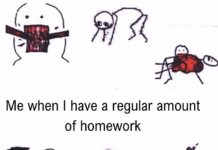DISCLAIMER: This staff editorial contains mentions of death and suicide and may be triggering for some readers. Use caution before reading.
For an organization that stresses the importance of its student athletes’ personal and academic success, the NCAA has a funny way of showing it sometimes.
Despite the NCAA’s chief medical officer declaring mental health as the single most important health and safety concern in 2013, the “Power Five” conferences in the NCAA didn’t require its members to make mental health services available for all students until 2019.
It took the shocking suicide of Washington State quarterback Tyler Hilinski to spur the NCAA into motion.
For most college athletes, especially at the Division II level like Slippery Rock, student athletes compete in athletics simply for a love of the sport. For most, it’s the first time in their lives that they are on their own. These student athletes live away from their parents, away from the rigid structure enforced by parents and high school schedules. Living on their own, these student athletes are given the chance to stand on their own two feet for the first time.
With the choice to get more involved in clubs and organizations on campus, continuing their academic studies and figuring out who they are as people, the newfound freedom for these student athletes can be tough to balance with their athletic responsibilities.
Who do student athletes turn to if and when they are struggling with mental health? If the star quarterback of the football team is struggling with depression and the backup goalie on the field hockey team is struggling with her mental health, do they receive the same help? Do they receive any help? While these student athletes will not truly seek help unless they ask for it, are their coaches equipped to deal with these topics if they do ask for help?
The education of and continued vigilance of coaches, trainers and those associated with athletic teams must be prioritized. We believe that all professors, faculty and administrators who work at SRU must complete a mental health training, like the training provided by Mental Health First Aid USA.
As is the case at Slippery Rock, counseling centers on college campuses are ramping up their coverage and availability of mental health. We encourage our own counseling center to do the same.
Currently, the SRU counseling center hours are 10 a.m.-6:30 p.m. on Mondays and Tuesdays and 8 a.m.-4:30 p.m. on Wednesdays, Thursdays and Fridays. For the busy athlete with a full class load, hours-long practices and travel for away games, these hours are not accessible enough to sufficiently address the mental health of a student athlete.
While student athlete mental health is an obvious priority with the stigma surrounding mental health in athletics, this coverage should extend to all students—and not just those struggling with mental health.
This is all in addition to the need of normalizing mental health conversations on college campuses. The recent Student Government Association town hall on mental health was an effective first start, but we cannot let this energy diminish.
Student athlete mental health is certainly not a crisis unique to SRU, but by combatting these challenges in our own community, we continue our awareness efforts to show support for our own Green and White.






